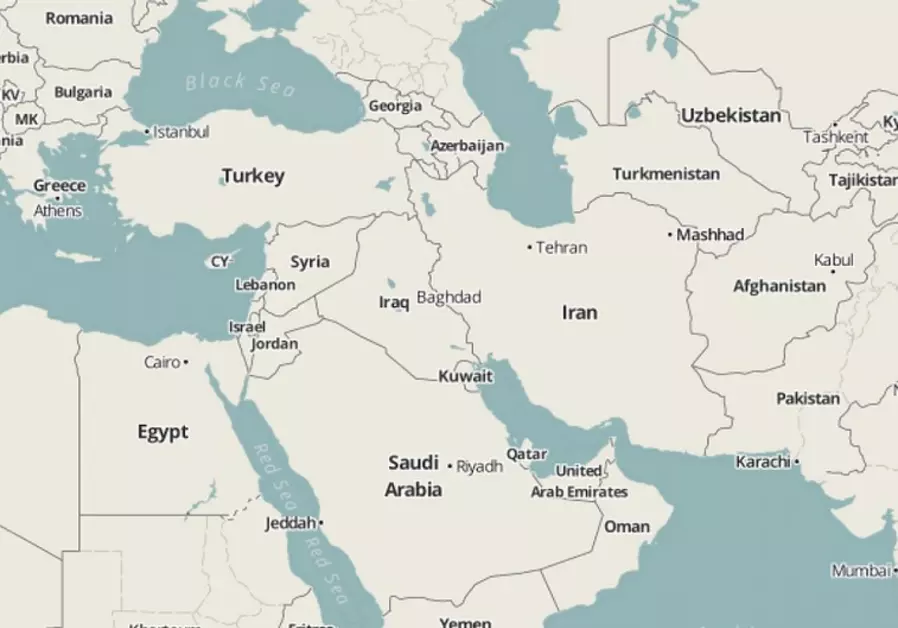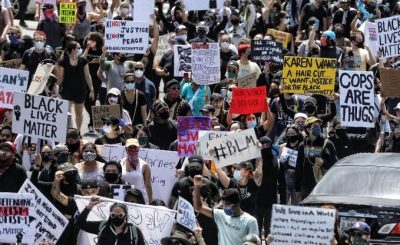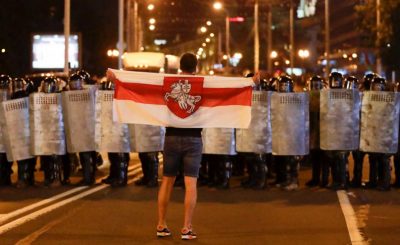IMPERIALISM IN CRISIS
Last month, the annual reports of the UN General Secretary Kofi Annan and UNCTAD (United Nations Conference on Trade and Development) were announced. In Annan’s report, there were remarkable conclusions which reveal the defects of the system with regard to stabilising imperialism.
Annan says: “Globalisation feeds drug traffickers and black market dealers and only a couple of countries in Asia can derive advantage from it.” Also, the international monopolies are not happy about the value of money they do not control. Annan reminds us that the idea of globalisation could not be spread everywhere, people still face death in defence of their national identities, and this is very dangerous for the system.
The UNCTAD report supports Annan’s view and defines the present situation more clearly: “If globalisation continues as it has done, a new crisis, similar to the 1929 economic crisis, is on its way.” The crisis which deepened in the last 20 years, as it says in the report, will make the situation worse with every passing day. The fear of imperialism is, this time they may not be able to handle another crisis which could be worse than the one in 1929 and this crisis may prepare the way for their end. In the report, “The seven great scourges of globalisation” are also mentioned which are harbingers of crisis and require urgent action. They say that “slow growth and increasing inequality are the permanent characteristics of today’s globalised world”.
After that, the following statement about the rate of growth, low wages and increases in unemployment was made: “Despite exceptions among some countries, the world’s economy is growing very slowly. With this slow growth rate, a satisfactory level of wages and sufficient work opportunities could not be provided, therefore poverty has not eased.”
It was also mentioned, after 1980, in order to develop the world economy which was frustrated, globalisation was implemented by removing all international borders, and this caused increased differences between countries in income and development, damaged income distribution and caused economic growth to slow down. The globalisation policies of imperialism which were created to overcome the crisis of the imperialist countries, deepened problems rather than solving them. In the 1990s, the rate of growth in all of the imperialist countries dropped severely. In 1994, in the USA, it dropped below 1%.
The speed of growth in the neocolonial countries, on the other hand, depends on debts. As in our country, the growth rate of 5-6% is because of borrowed capital, not the result of production. With the cancellation of limits on the movement of international capital, income redistribution in neocolonial countries to even out inequality, now caught between new capital and profit income, has been destroyed. The UNCTAD report considers all this and warns of the danger of “social anarchy”. “If liquidation occurs in the international economy, the weight will bear down on the shoulders of the weak as was the case in the period of crisis”.
The terms “social anarchy”, “social explosion”, and “social crisis” in fact refer to the rebellion of people against exploitation. The evaluation by the imperialists of the 21st Century as “the century of uprisings” completes this view. This is a nightmare for imperialism.
The Fairy Tale Of Globalisation
The period, which was defined as “the New World Order” by the US president, George Bush, during the Gulf War in 1991 and was actually on the agenda of imperialism since the 1980s, expresses the era when the world was reorganised for the benefit of imperialism. It was the best thing imperialism could come up with, alongside the “unipolar world”, “neoliberalism” and “globalisation”. It was discreetly applied, together with the free trade and free market decisions of the greater imperialist countries in the GATT meeting in 1993, and its propaganda stated that living standards would be increased and the creation of a more just society would be achieved.
According to the New World Order, the world is “a big village” and everything and everyone can travel freely in this village. That is, custom limitations, protective walls and trade barriers which were formed because of the Cold War and creation of blocs, and which caused barriers to world trade, would be lifted and a new world market would be created. Hence, the flow of capital and commodities, technology and culture will be under the hegemony of the giant imperialist monopolies. Terms like “globalisation” are demagogic terms. Because right from the beginning, the main characteristic of the imperialist economy is to see the world as a shared market and connect the capitalist economies and politics of hundreds of different countries. Of course, imperialists carry out intense propaganda by covering up facts and putting forward various demagogic aspects of something to the exclusion of truth. They say that borders, national sovereignty and naturally, wars of national liberation were meaningless, the whole people of the world would share in the benefits of globalisation, imperialism was not the issue anymore and dependence was replaced by “mutual dependence”, national conservatism and the protection of national sovereignty were the sources of reactionary and oppressive regimes. Conversely, it was not possible for the dominant and limitless plunderer, neoliberalism, to provide welfare for the people of the world. The New World Order, with the support of neoliberalism and globalisation, could not create the promised miracles. When the contradictions of the imperialist countries with their own people, former socialist countries and neocolonial countries are added , the intensification of crisis is unavoidable.
The Roots Of Imperialist Crisis
The hegemony of the leader of imperialist countries, the USA, is getting weaker. Because the USA is losing its economic supremacy to Germany and Japan. The USA is trying to protect its supremacy by forming trading blocs, but despite its loss of power in the economy, it still keeps control in political, military and cultural matters. Around the three biggest imperialist power blocs the following were formed; for the USA, NAFTA; for Germany, the EU and for Japan, APEC. These blocs have not yet been completed but when they were complete, the rivalry between them could be destructive.
A similar collapse would create worse damage than the 1929 crisis and the period up to now proves it. For instance, crisis occurred in 1982 in Brazil and Mexico when they were not able to pay their debts; there were the 1987 and 1989 New York stock-exchange crises; in 1990 the bankruptcy of the savings institutions in the USA; the instability of the EMU in 1992-93 and at the end of 1994 the extension of the economic crisis in Mexico to Europe and the Far East. They prove that the “global” economy will feed “global” crisis.
The crisis of imperialism is deepening because of debts, trade gaps, decreases in growth rates and the increase in poverty and unemployment in their own countries.Economic crisis is also deepening social crisis.
Imperialism is in constant fear of social unrest which may develop in their countries. According to an International Labour Organisation report in 1996, within the next 25 years, there will be an increase of one billion in the world’s manpower market, and most of them will be unemployed. Today, in imperialist countries alone, while 100 million people are forced to live below minimum living standards, the homeless are more than five million and the unemployed number more than 41 million. These numbers increase with every passing day.
The demagogy of globalisation bringing wealth for all means nothing but the intensification of exploitation in neocolonial countries. Imperialism, on the other hand, will never be able to establish stability. Today, 358 billionaires own 54% of the income of the world’s population and the share of the poorest countries (10% of the world’s population) in world trade is only 0.3%. While the income share of the poorest countries (20% of the world’s population) was 2.3% in 1960, today this amount has dropped by half to 1.1%. 1.3 billion people (almost one quarter of the entire population) live on the edge of starvation and annually 13-15 million of men and women die of starvation. These are what the New World Order brings to the world’s people. This is also the source of the panic of the UN.
The UN’s function is to be a cover for imperialism. The UN is trying to apply the policies of imperialism without the reaction of peoples of the world by giving memberships to the collaborationist rulers of neocolonial countries. That is why the General Secretary of the UN is suggesting the gradual formation of the New World Order, silencing people by distributing a small share of the spoils to them. In order to prevent social unrest in neocolonial countries, instead of the policies raising obstacles to international capital, “national policies”, targeted development and support from “strong states” should be preferred, he says.




